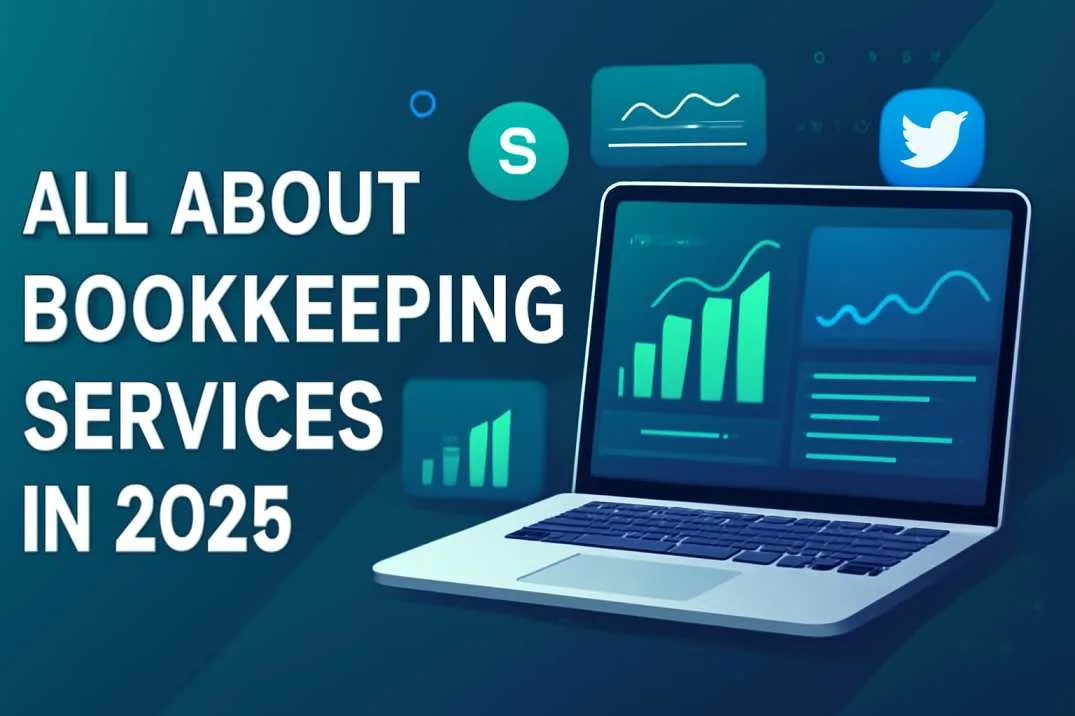All About Bookkeeping Services — Why It Matters & What It Really Does
Running a business isn’t easy. Between managing customers, employees, products, and growth, one area often gets pushed to the side: finances. Yet, keeping financial records organized is the backbone of every successful business. Without it, you’re flying blind. That’s where a bookkeeping services steps in.
In this guide, we’ll walk through what bookkeeping service actually means, why it’s crucial, how it helps your business grow, and what to look for when choosing one.
What Is Bookkeeping Service?
A bookkeeping service is the process of recording, tracking, and maintaining all your financial transactions. While many people think it’s just “data entry,” it goes far beyond that. Bookkeeping provides a complete financial picture of your business, helping you understand where money comes from, where it goes, and how to plan for the future.
Here’s what bookkeeping services usually include:
· Transaction Recording & Categorization
Every sale, expense, payment, and deposit is tracked and sorted into categories like income, overhead, assets, or liabilities. Proper categorization is what turns raw numbers into meaningful insights.
· Bank & Credit Card Reconciliation
Matching what’s in your books with bank and credit card statements ensures everything is accurate. If there are errors or missing transactions, they’re caught quickly.
· Accounts Receivable & Payable
Bookkeepers track invoices and bills, making sure customers pay on time and that you don’t miss due dates for vendors. This keeps your cash flow steady.
· Payroll Oversight
Salaries, bonuses, and deductions are recorded accurately, ensuring employees get paid correctly while keeping your financial statements clean.
· Financial Statements
Monthly or quarterly reports like the Profit & Loss statement, Balance Sheet, and Cash Flow statement give you a clear picture of how your business is performing.
· Budgeting & Expense Tracking
By monitoring your spending, bookkeeping services help you identify unnecessary costs and plan better for the future.
· Compliance & Tax Readiness
While bookkeepers don’t usually file your taxes, their records make tax season stress-free. Organized books mean fewer errors, less time wasted, and fewer risks of penalties.
Why Bookkeeping Services Is Essential for Businesses
Even if you’re running a small business, clean books are not optional — they’re essential. Here’s why:
1. Clarity for Better Decisions
With accurate records, you’ll know exactly how much profit you make, what your biggest expenses are, and which areas need improvement.
2. Saves Time and Energy
Doing your own bookkeeping means late nights with spreadsheets. Outsourcing to a professional service frees your time for running and growing your business.
3. Avoiding Costly Mistakes
Missing bills, duplicate payments, or misclassified expenses can quickly add up. A bookkeeping service ensures accuracy and prevents small mistakes from becoming financial disasters.
4. Improved Cash Flow
Bookkeepers track who owes you money and when you need to pay others. This helps you plan ahead, avoid cash shortages, and keep the business running smoothly.
5. Building Trust with Investors & Lenders
Clean financial records improve your credibility. Whether applying for a loan or seeking investment, accurate books show professionalism and reliability.
6. Stress-Free Tax Season
Scrambling to collect receipts in March or June is painful. A bookkeeping service keeps you tax-ready all year long.
The Difference Between Bookkeeping and Accounting
Many people confuse bookkeeping with accounting. They’re connected, but not the same.
· Bookkeeping Services: Focuses on recording and organizing financial data. It’s the foundation of your financial system.
· Accounting: Involves analyzing those records, preparing strategies, and advising on decisions.
· Tax Services: Use both bookkeeping and accounting to file taxes and ensure compliance.
Think of it like this: bookkeeping is the foundation, accounting builds the structure, and tax planning is the roof that keeps everything safe.
Qualities of a Great Bookkeeping Service
Not every bookkeeping services is created equal. When choosing one, look for these traits:
|
Quality |
|
|
Accuracy & Attention to Detail |
Even small errors can mislead you. You need reliable records. |
|
Cloud-Based Tools |
Modern platforms like QuickBooks, Xero, or FreshBooks allow easy access anytime, anywhere. |
|
Regular Reports |
A good service provides monthly financial statements, not just year-end summaries. |
|
Flexibility & Scalability |
Your bookkeeping should grow with your business — adding features as needed. |
|
Clear Communication |
You should understand your reports without accounting jargon. |
|
Industry Knowledge |
Bookkeepers familiar with your industry can better handle unique challenges. |
Common Misconceptions About Bookkeeping Services
· “It’s just data entry.”
No — bookkeeping is about accuracy, categorization, and financial insight. It goes far beyond typing numbers into spreadsheets.
· “I only need it at tax time.”
Wrong. Year-round bookkeeping gives you real-time insights, not just tax compliance.
· “Software alone is enough.”
Tools are powerful, but they still need humans to review, reconcile, and interpret.
· “I can always catch up later.”
Trying to update months of records in one go leads to mistakes and missed information. Bookkeeping works best when it’s consistent.
Getting Started With Bookkeeping Services
Here’s how to introduce bookkeeping into your business smoothly:
1. Assess Your Current Records
Are you up to date? How many months of data are missing? Knowing your starting point helps you choose the right service.
2. Set Your Goals
Do you want just compliance? Or do you want insights to grow your business? The answer will guide the level of service you need.
3. Choose In-House or Outsourced
In-house gives you direct access but adds overhead costs. Outsourcing often provides expert skills at a lower price.
4. Pick the Right Software
Cloud-based solutions make collaboration easy and give you access to your numbers 24/7.
5. Schedule Regular Reporting
Monthly reports keep you on track. Waiting until year-end defeats the purpose of bookkeeping.
6. Review and Adjust
As your business grows, your bookkeeping needs will change. Review regularly and scale up when necessary.
Real-World Example: Bookkeeping in Action
· Local Café: A café owner once tracked expenses manually and often lost receipts. They didn’t know which menu items were profitable. After hiring a bookkeeping service, they started receiving monthly profit reports. They realized coffee had the highest margins, so they promoted it more — boosting profits within six months.
· Growing E-Commerce Store: An online store selling across multiple platforms struggled to manage returns, shipping fees, and payment gateway charges. With bookkeeping services, all transactions were synced and categorized automatically. The owner could finally see true profits and make smarter inventory purchases.
The Future of Bookkeeping Services
Bookkeeping today isn’t the same as it was a decade ago. Modern services use automation, AI, and cloud technology. This means fewer manual errors, faster reporting, and real-time insights. Businesses can now see their financial health at a glance instead of waiting weeks.
Trends to watch include:
· More virtual bookkeeping services available globally.
· Advanced data dashboards for instant insights.
· Tighter integration with sales platforms, payment systems, and CRMs.
· Stronger security features to protect sensitive financial data.
Final Thoughts
A bookkeeping service is more than just a nice-to-have — it’s a must for any business that wants to grow. Whether you’re running a small shop, a startup, or a scaling e-commerce store, proper bookkeeping keeps you informed, organized, and confident.
By investing in a quality bookkeeping service, you gain more than tidy books. You gain peace of mind, financial clarity, and the freedom to focus on what truly matters: running your business.





